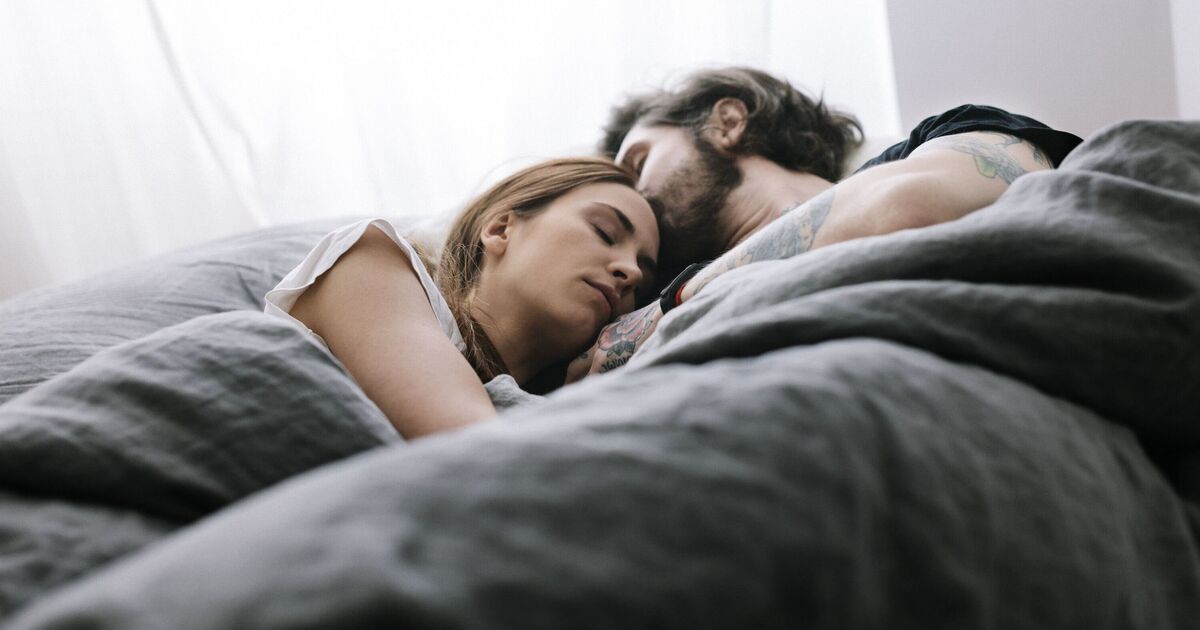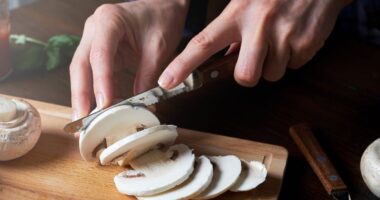Sleep haven or slovenly mess? According to a poll by the National Sleep Foundation, people who make their bed every day are 19 per cent more likely to sleep deeply and have a greater sense of wellbeing.
Researchers at St Lawrence University in the US also found messy bedrooms increase anxiety. However, there are benefits to being lazy – a study at Kingston University found that leaving your bed unmade could be beneficial, as bedding can dry out after overnight perspiration, which causes dust mites to dehydrate and die. Peeling back the covers for as little as 30 minutes could be enough to see off the pests.
Goggleboxing: According to one survey, couples who watch TV in bed are twice as likely to have good sex, with regular lovemaking linked to a lower risk of heart disease.
But the British Chiropractic Association has warned that slumping in bed while you watch can lead to back and neck pain, and even spinal problems. If you do read in bed, Harvard Medical School advises a book rather than digital devices, as the blue light they emit can suppress sleep hormones.
A clean sheet: When it comes to your bedding, you need to wash pillowcases and duvet covers at least every fortnight. If you have asthma, eczema or dust mite allergy, however, Allergy UK recommends you do this once a week.
A third of the weight of your pillow could be made up of bugs, dead skin and dust mites, which can harbour bacteria and harmful fungus. Wash pillows regularly at 60C.
Don’t let the bedbugs bite – bedbugs hit the headlines last year after a huge outbreak in France spread across Europe. The bites – often found on the face, neck and arms – can be itchy and look like raised, red blotches. They also leave a musty scent and blood spots on bedding. If you suspect you have them, contact a pest controller because they’re hard to get rid of.
PJs or birthday suit?: Researchers have found that sleeping naked helps regulate your body temperature and can even boost your sex life.
As for your favourite position in bed, it seems there’s no correct sleeping posture, but bear in mind that dozing on your left side seems to be better for easing heartburn, while sleeping on your back increases the chance of snoring and teeth grinding.
Whatever pose you strike, make sure you keep your room dark and cool (between 16-18C). Fresh air will aid slumber.
Is sharing caring?: Studies have have shown that sharing a bed can help couples get better sleep and improve emotional bonds, while spooning with your partner may also reduce pain by releasing feel-good hormones.
However, if your other half is a snorer, the lack of sleep could affect everything from the condition of your skin to your chances of piling on the pounds.
And what about our furry friends? It seems that while sharing a bed with your pet can be linked to lowering stress and better sleep, we need to be aware that it could also raise our risk of being exposed to infections or catching worms.
Snooze schedule: Nearly three-quarters of Brits don’t get the NHS recommended seven to nine hours of sleep each night. One study found that 10-11pm is the best time to go to bed, but the key thing for good sleep is to maintain a similar routine.
Weekend lie-ins can upset our internal body clock, while hitting the snooze button during the week should be a sleep no-no too.
Researchers in the US found that rather than bringing the benefits of extra sleep, these habits make us feel groggier for longer when we do eventually get up.







